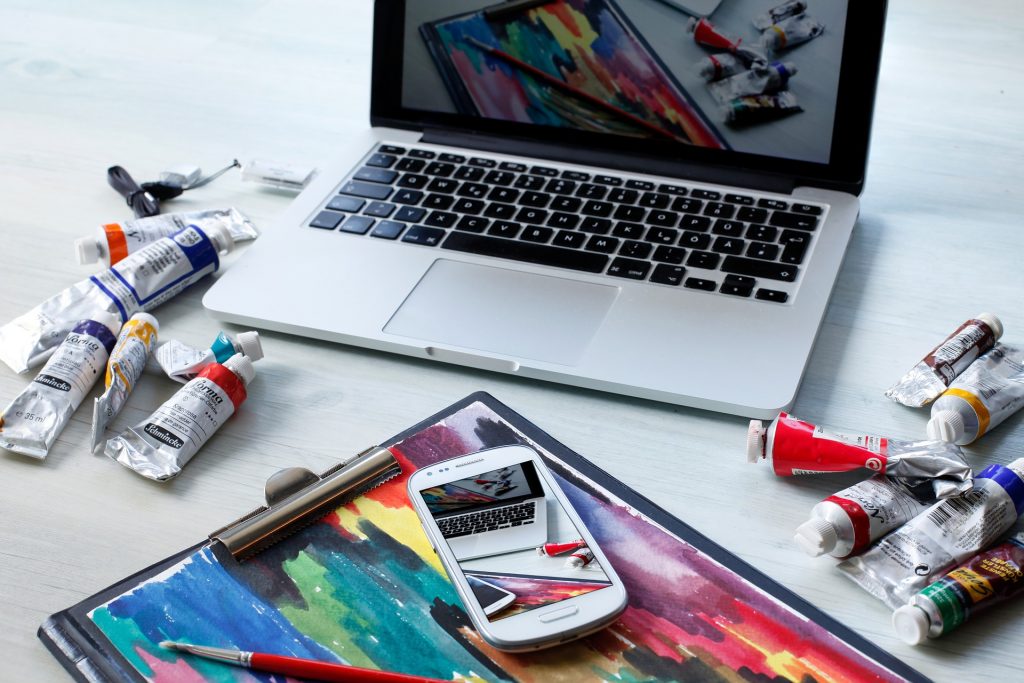Trademarks essentially provides protection for intellectual property such as your name, logo, brand name etc. as opposed to copyright that provides protection for the substantial parts of your art. If you are a brilliant creative who is expecting their big break imminently, you should apply to the Trademarks Registry to register your trade name, brand or logo now, before that big break arrives.

In understanding trademarks, it will help to see it as the protection of naming rights. In 2020, Beyonce secured the trademark rights for her daughter Blue Ivy’s name, giving the child and her parents exclusive rights to the use of the name.
Just like with Beyonce, trademarks give creatives the sole right to identify their work or service with that mark or name. Under Nigerian Law there are 45 classes under which you can get a trademark so as a creative, you have to register your name under the class which your services or art most closely fall under. Many artists are likely going to register their trademark under class 41 “education and entertainment services” or whatever is most suitable.
What does Trademark law protect?
Trademarks allot security to the artist who registers a particular mark or name. If you create a body of work and tag it “lemonade” for example, you can protect the tag “lemonade”. If you come up with a creative pseudonym for yourself or use your given name in relation to your work, you could also protect that name, otherwise after you have worked off your posterior in building a brand with such name, a random person could decide to pass off with your name and when you decide to sue, your claim may not be successful because random person registered the name first. Artists like Picasso, Omotola, Beyonce etc. have their names protected by trademark.
How long does your Trademark last?
After you submit an application to register your trademark and it is accepted, your trademark is protected for 7 years from the date of first application and upon expiration, it can be renewed for a period of 14 years.
What rights does a trademark owner have?
The registration of your trademark, service mark, brand name or logo gives you the exclusive rights to the use of the registered name or mark or to grant licenses to others to use the registered name or mark. According to section 3 of the Trade Marks Act, if you do not register your name, you cannot sue to recover damages based on the infringement of your unregistered name, or logos.
Can you lose your trademark rights?
After application to register your trademark has been accepted, it is then published in the Trade marks Journal. However, any one can reasonably oppose your application within 2 months of publication, and the Registrar will consider the facts and make a decision.
It is important to note that registration of your trademark does not affect the right of others in the legitimate use of their given names. So, if for example you register your artistic name “Drew” with the Trademarks Registry, under educational and entertainment service, it does not preclude a “Drew Lagbaja” in Gbagada from continuing in the use of his given name in school, church, or other places.
Registration of your trademark also does not preclude a person using the registered trademark in good faith to describe their business. An example of this is where you register your stage name “Spicy” under a particular class, it doesn’t stop Iya Basira in Obalende from describing her Ofada sauce as spicy.
Where the registration of your trademark expires, and you do not renew it, you could also lose your rights to it.
How do you enforce your rights?
When someone exploits or attempts to exploit your trademark, it is known as trademark infringement and you should get your Lawyer involved to prevent unauthorized use of the mark and possibly obtain damages to compensate you for any loss you may have suffered as a result of such infringement.
This is the second installment in our Intellectual Property series. In the first installment, we explained how you can protect your intellectual property from theft. Read it here.
Disclaimer – Although we consulted with reputable lawyers on this piece, this article is for informational purpose only and is not intended to constitute legal advice.
Questions? Comments? Use the comment box below. Follow us on Instagram and Twitter @kuratingmag for firsthand access to our community.


2 comments
This is insightful. Thank you
You’re welcome. We are happy you found this article insightful. Please feel free to peruse our other articles on intellectual property as well as on other subjects.
Comments are closed.